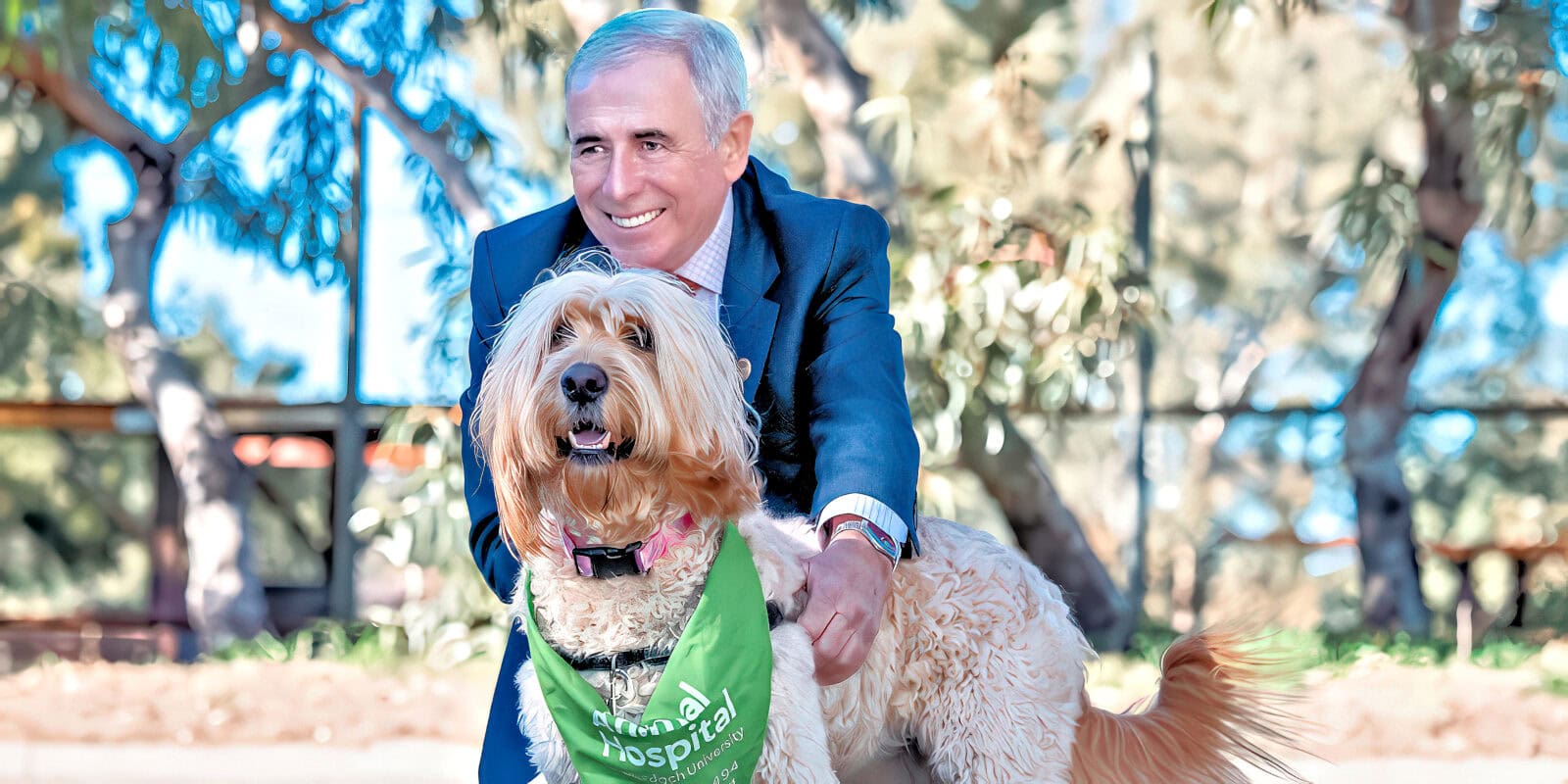$100 million donation to veterinary school from philanthropist Ted Powell

Perth businessman Ted Powell has made history with a record-breaking $100 million donation to Murdoch University—Western Australia’s only veterinary school—marking the largest gift ever received by a university in the state and one of the most significant in Australia.
The funds will be used to completely redevelop the School of Veterinary Medicine, creating a new, state-of-the-art facility that will transform animal research, teaching, and training for generations to come.
Powell, founded Offshore Incorporations Limited and built a successful international career before turning his attention to philanthropy.
He and his late wife, Dee, shared a deep love of animals and established The Ragdoll Foundation, which has already funded scholarships for more than 140 Murdoch University students. Dee’s memory is central to this latest act of generosity, and Powell says she would be “really, really proud” to see the project take shape.
“There are many good causes in the medical field, in the educational field,” Powell reflected.
“I would encourage anyone who is financially well-off to consider giving to worthy causes. You can’t spend $100 million when you’re 74. It’s just not possible.”
Murdoch University Vice-Chancellor Professor Andrew Deeks called the gift “extraordinary,” saying it would secure Western Australia’s position as a leading hub for veterinary medicine.
The new 9,600-square-metre building will replace the school’s ageing infrastructure, enabling a 50 percent increase in student capacity and providing world-class facilities for teaching and research. The redevelopment will also strengthen Murdoch’s “One Health” agenda, which recognises the interconnectedness of human, animal, and environmental health.
For nearly 50 years, the School of Veterinary Medicine has been a cornerstone of animal health education in the region, graduating 4,000 veterinarians since it first opened in 1975. It consistently ranks among the top 50 veterinary schools in the world and trains about 100 new vets each year. Many of its graduates go on to work across Australia and internationally, contributing to fields as varied as livestock and equine medicine, wildlife conservation, and advanced biomedical research.
The Animal Hospital at Murdoch University—integral to the school—will also benefit from the redevelopment. Serving both the public and the veterinary profession, it is the facility of choice for complex cases and treats a diverse range of patients, from cats and dogs to horses, giraffes, and other exotic zoo animals.
It also provides vital services to the agricultural and racing industries, underscoring its importance to both the local economy and animal welfare.
Professor Deeks explained that the veterinary school upgrade is the first stage of a larger vision to create a Conservation and Life Sciences precinct at Murdoch University.
This transformation will include refurbishing the existing veterinary buildings and expanding the university’s research and teaching capacity in environmental science and conservation—fields that have been central to Murdoch’s mission since its founding.
He noted that advances in veterinary medicine and new safety requirements for laboratories and animal facilities have made the redevelopment essential.
The new facility will improve the safety and wellbeing of staff, students, and animals, while also providing better services for the agricultural and scientific communities. Importantly, it will expand opportunities for biomedical research collaborations and help attract top-tier academics, students, and animal health specialists from around the world.
Speaking with clear admiration for Powell’s foresight, Deeks said, “On behalf of Murdoch University, I cannot thank Ted Powell enough for his generosity, support, and foresight. He will leave a legacy for the Western Australian veterinary profession, animal research—and for animals great and small—which will resonate for generations to come.”
With this unprecedented gift, Powell has not only honored his wife’s love for animals but has also reshaped the future of veterinary science in Australia. In doing so, he has set an inspiring example of how personal wealth, when directed toward a deeply meaningful cause, can transform institutions, professions, and communities on a lasting scale.

